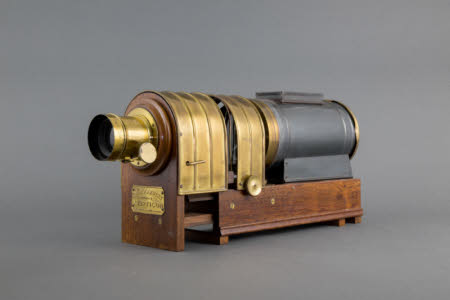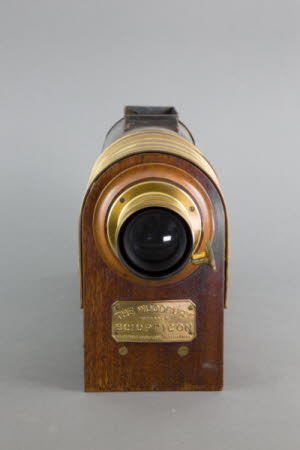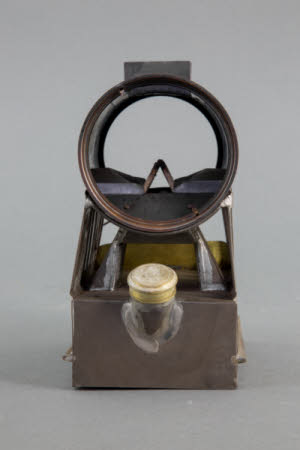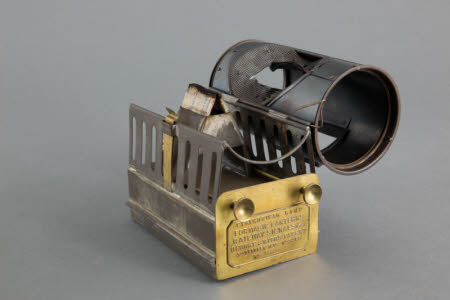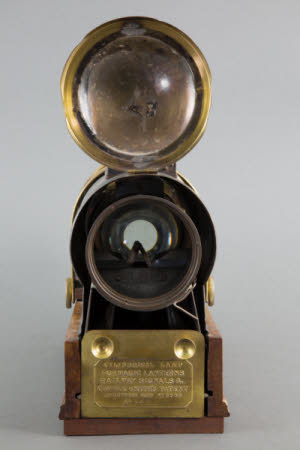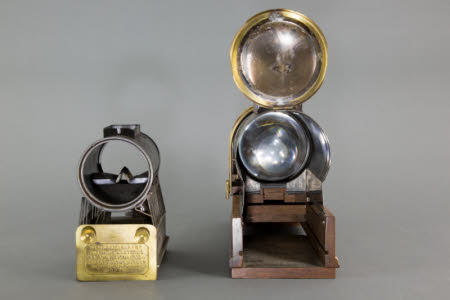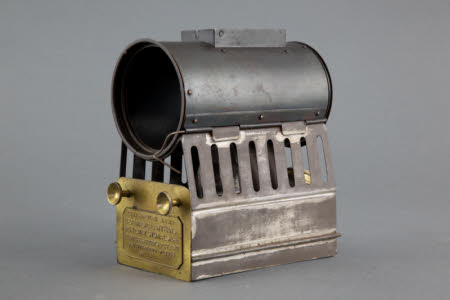Woodbury Improved Sciopticon Lantern Projector.
Category
Photographic technology
Date
1870
Materials
Metal, Wood, Glass
Measurements
(extended) 230 x 122 x 530 mm
Order this imageCollection
Fox Talbot Museum, Wiltshire
NT 1525176.1
Summary
Woodbury Improved Sciopticon Lantern Projector. Irregular shaped object manufactured in metal, glass and wood, with some brass plating. The base of the projector is wood upon which sits the metal casing for the glass lens. At the front of the lantern is the burner which can be pulled out completely. This burner has a tank with a screw cap, to allow it to be filled with kerosene. The black circular tube around the burner has a window on the top which would accommodate either one of the chimneys. At the front of this section are two brass knobs which are used to pull this unit out of the main body as well as the illuminant controls. There is a brass plaque underneath these knobs with the marking "Cylindrical Lamp" "Formagic Lanterns Railway Signals & co. George Smith patent. 3rd October 1879 No 3968 No 469". This cylinder is revealed when the brass flip lid with the metal hinge on the top. In the middle of the main body behind the burner there is a large circular lens encased in brass and the two sections to hold slides is also brass with a wooden base. These sides can move on a rack and pinion metal track by the turning of two metal wheels on each side. Just in front of the lens section is a small lever that can move a small plate that covers the lens hole. The lens at the far back can be adjusted on a rack and pinion metal track turning a large wheel underneath.
Provenance
Part of the Fenton Collection. A gift from British Film Institute in 2017. From 1986-1999, part of BFI collection for the Museum of the Moving Image. BFI purchased collection in 1986 from James Fenton's Museum of Photography, Port Erin, Isle of Man 1976-1986
